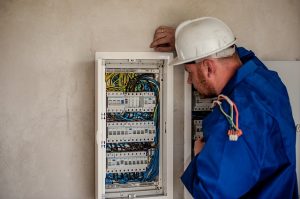 While owning a rental property can be a lucrative investment, dealing with tenants and maintenance issues is often stressful and expensive. Because of this, some property owners might be tempted to ignore repair issues for as long as possible, especially if a maintenance worker states that they couldn’t find a problem and everything is fine. This mindset can be a costly mistake.
While owning a rental property can be a lucrative investment, dealing with tenants and maintenance issues is often stressful and expensive. Because of this, some property owners might be tempted to ignore repair issues for as long as possible, especially if a maintenance worker states that they couldn’t find a problem and everything is fine. This mindset can be a costly mistake.
Service Requests are Inconvenient
Tenants do not typically ask for maintenance to come to their apartment or home without a reason. Requesting service from an owner or property manager takes effort, as does clearing up time in their schedule and straightening up their home or apartment in anticipation of a maintenance visit. Maintenance calls need to be effective on the first visit so that tenants and maintenance workers don’t have to deal with repeated requests for repairs of an unresolved problem. That will only cause frustration.
Repeat Service Calls Cause Frustration
Failure to fix maintenance issues the first time is frustrating for the tenant, but is also frustrating for the maintenance worker and those who are scheduling such appointments. Repeated visits for one problem are a waste of time and resources.
One way to help cut down on such aggravation is to teach tenants how to describe problems or issues accurately.
Focus on Descriptions instead of Repairs
Often when a tenant calls in a request for maintenance they request a specific repair to be made rather than describe a problem to be fixed. This happens when tenants attempt to trouble shoot a problem themselves. However, if the tenant is wrong, the maintenance visit will often fail to resolve the real issue. This is because the worker showed up prepared to repair a specific problem rather than diagnose the problem himself or herself.
Help tenants report problems accurately by teaching them to describe problems rather than request repairs. For example, rather than a tenant putting in a service request to:
-Replace thermostat
-Change air filter
-Replace oven broiler element
They should instead consider these descriptions of the problem they are having:
-Air conditioner isn’t cooling
-Furnace turns off part way during the cycle.
-Oven takes too long to heat.
These descriptions tell maintenance the condition that needs to be fixed while also being as specific in detail as possible. Maintenance workers can then schedule appointments ready to deal with the actual problem rather than the perceived problem that might not be accurate. This will lead to less frustration for everyone involved.
It’s all About the Service Request
It can take practice for tenants to learn how to provide a well-written service request but it’s a skill that is beneficial to everyone. Professional property managers can aid tenants in developing this ability.
A good service request will include permission to enter a property if the resident isn’t home and also give instructions for dealing with the presence of pets in the household and how they will be secured or contained. In addition to the description of the problem, a good service request will include a contact number in case there are any questions. This can help reduce the number of “Couldn’t Find A Problem” service requests. Also, a call from an owner, property manager, or maintenance supervisor or technician to clarify the service request demonstrates a desire to provide good customer service.
 Good Maintenance is Worth the Hassle
Good Maintenance is Worth the Hassle
Satisfaction with maintenance repairs is often the deciding factor on many lease renewal decisions. The importance of timely and accurate service can’t be underestimated.
Property managers understand that tenant satisfaction matters. They can help keep a profitable rental property from becoming a financial failure by taking care of maintenance issues the first time a problem is reported.
Professional property managers such as Martin Feinberg understand how important it is to keep tenants happy while also watching the bottom line. They know how to respond to maintenance calls quickly and efficiently, with reliable vendors that can get the job done one the first visit.